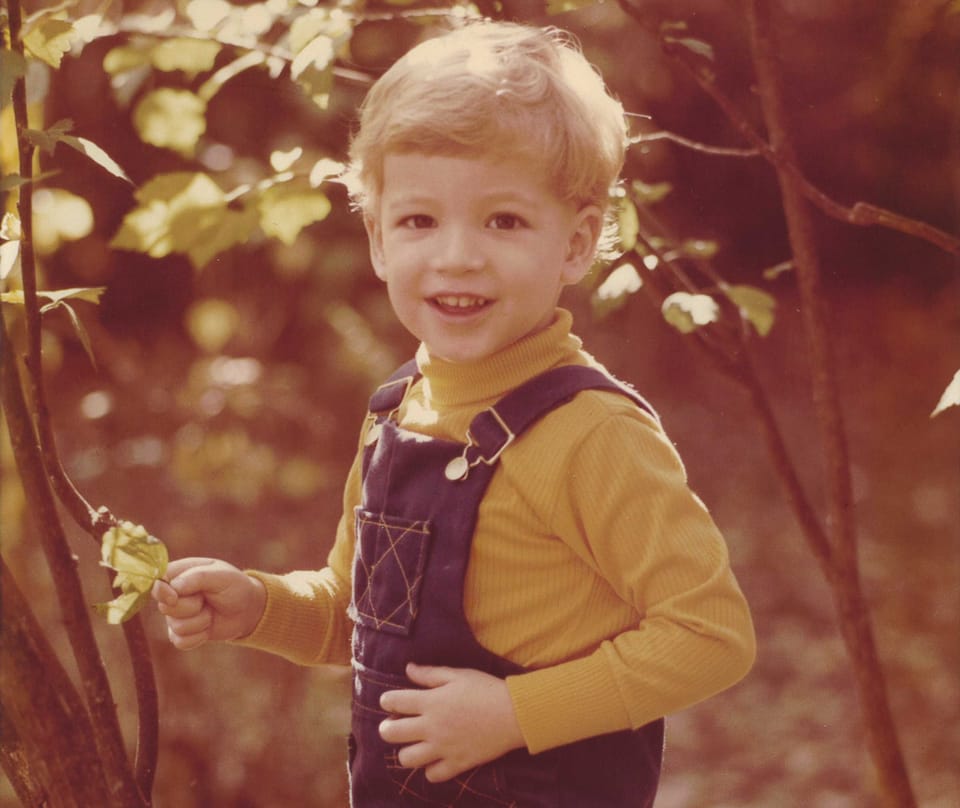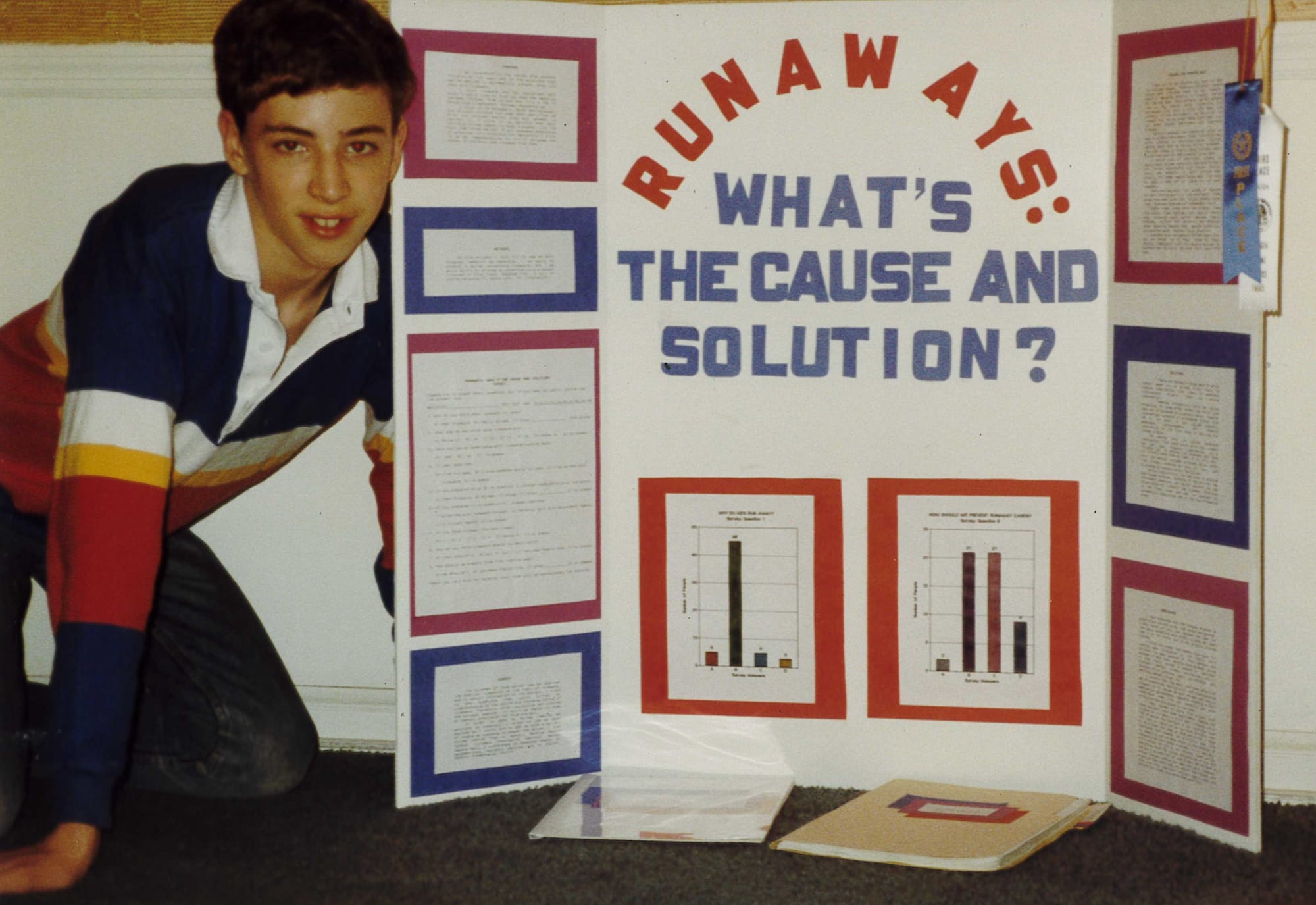My journey

I grew up in Atlanta (more specifically, in Decatur and Avondale Estates). My family was immersed in a version of Presbyterianism that connected faith and social justice. My dad taught theology at Columbia Theological Seminary, and my mom was an active member of the churches to which we belonged. Church was an important part of my life through high school, and there I learned about the Jesus who lived among the marginalized, advocated for the poor, and challenged the political authorities of his day. My religious upbringing was strictly within mainline Protestantism, and I had little exposure to evangelicalism. All the other important institutions of my childhood, including family, school, and Boy Scouts, reinforced the importance of “community service,” especially feeding the hungry.
And also, I was a middle class white boy. Every part of my life (home, neighborhood, school, church, sports...) was racially segregated. I began wondering about race and racism early on. My high school was small and predominantly African American, but many of my classes were predominantly white due to academic tracking. The seminary community I grew up in included many people who worked and spoke out for racial justice. And still, white supremacy structured all aspects of my childhood. Thus, I lived with and benefited from social arrangements that I did not (entirely) like as a kid.

I loved riding my bike and playing outside—in yards, creeks, and woods. My parents took me to visit national parks, and I spent many weekends camping and hiking with Scouts. In high school, I became an environmentalist. I was concerned about resource consumption, air pollution, and waste. I became passionate about recycling (hey, it was the 1990s!). I began riding my bike to church on Sunday mornings. But once I got to church, I saw no connection between what we were doing there and the natural environment. It didn’t occur to me that a connection even existed, which says a lot about the religious tradition I grew up in.
In high school I became fascinated by “other cultures.” My musical interests exploded to include all kinds of American roots music and music from the Caribbean, West Africa, China, and elsewhere. I stayed home many Saturday nights to tape episodes of “Afropop Worldwide” on public radio. I loved going to “ethnic” restaurants. I was particularly interested in Native Americans, and my attitude was decidedly romantic. My senior year I structured an independent study around big questions I had about human beings.
I learned that anthropologists ask such questions, and at Davidson College I majored in anthropology and concentrated in Native American Studies. My interests in colonial encounters and the history of racism in the United States deepened, and I am grateful to professors who introduced me to feminist theory. I began writing papers that analyzed colonial domination and critiqued intersecting systems of oppression.
These interests carried me through graduate school and into my career as a college professor. In grad school I began conducting fieldwork in northern New Mexico, which remained an important part of my life for fifteen years. There I met many remarkable people whose Nuevomexicano and Pueblo communities were asserting their identities and rights in the context of New Mexico’s double colonial history. In New Mexico I became more aware of land injustice, and I eventually began studying sustainable food systems and land-based cultural revitalization projects. I learned to see land as sacred as I observed people praying and dancing on the land, saving and exchanging seeds, and orienting their lives around landscape features. (My Guilford web page gives a fuller picture of my work in New Mexico.)
At Guilford College, my courses have focused on colonial legacies and environmental topics such as land use and climate change. These themes became increasingly integrated as I came to see environmental justice and climate justice as the main umbrellas under which I work. At Guilford I became involved in anti-racism training and learned much from working with an experienced and racially diverse group of colleagues. On the side I dipped my toes into community organizing, joining an interfaith environmental organization and an effort to start a Transition initiative in Greensboro.
Becoming a social scientist impacted my relationship with church. Beginning in my mid-twenties, it became hard for me to ignore how racially and economically segregated the churches I visited were. The preachers talked about how Jesus loved poor people and the outcast, but there were no poor people in the congregation, and the overwhelming whiteness of the churches made me uncomfortable. Simultaneously, I began to question what I believed about God and Jesus. Yet something kept me in church, feeling uncomfortable. In Greensboro, I found New Creation Community Presbyterian Church, an interracial and mixed class congregation that was focused on social justice. It gave me hope. Kate joined me there after we got married, and she pastored the church for two years. Our two kids were baptized there. New Creation was not perfect, of course, and now we worship at a small Lutheran church that is wonderful in many ways and that is also imperfect.
As an adult, I have increasingly longed to be part of a spiritual tradition that is committed to justice and that is rooted in the earth because it centers on the love that is God. To love God is to love (enjoy, care for, protect, revere) every being that God creates and inhabits, human and non-human alike. I am fortunate that, unlike many people, I have not been hurt by Christian churches or their teachings. And yet I am coming to realize that my religious tradition, significantly shaped by Empire, has limited my worldview and constrained my spirituality. I remain attracted to Jesus, the radical counter-cultural teacher and leader, but I feel little connection to “Jesus Christ our Lord and Savior,” even less to “God the Father Almighty.” I identify with the voyager that John Philip Newell describes in Sacred Earth, Sacred Soul:
Many of us today in the Western world are aware that the old order is not working—politically, socially, environmentally, religiously. Countless members of us from the Christian community have already lifted anchor and are sailing out of the harbor of our religious homeland, even though we may not know where we are heading or how far we need to go. The good news is that we do not need to know exactly where we are heading. We can choose to be part of an ancient spiritual practice of peregrination, leaving home or the comfort of the familiar in order to seek resurrection, new beginnings.
This is not simply a passive drifting into new waters. It can be a faith-filled letting go of what is no longer working in order to travel with an inner assurance toward what we are longing for, our eyes open, skinned for the shoreline of ‘a better country’ (Heb. 11:16). Each one of us is a voyager. (247–248)
As I tentatively leave the harbor of my religious homeland I am excited and anxious. I imagine leaving the familiar house of the institutional church, the people I love who dwell or dwelled there (including my parents and grandparents), and the part of me that still dwells there. Grief wells up. I want to explore the outskirts of my own religious tradition, and maybe beyond, but I don’t know how far I will go. These words from an old gospel song by Reverend William Herbert Brewster assure me: “There is something so divine, down in this heart of mine. I feel something drawing me on.”
In 2023, I had an epiphany. I had been teaching Vandana Shiva’s critique of industrial values and worldview in one class and Robin Wall Kimmerer’s Braiding Sweetgrass in another. At home I was reading Newell’s work on Celtic spirituality, which affirmed what I knew deep within me to be true about God, Spirit, human beings, and the earth. I had the sense of exiting a dense forest and entering a wide-open space with distant horizons. Shiva, Kimmerer, and Newell (writing about India, North America, and Europe respectively) inspired me to peel away layers of Roman/British/American imperial culture to uncover a spirituality of the sacred earth. I admit that I am a novice in this work. I am entering a second childhood.
In that context I realized that the work I want to do in the world is, at its most fundamental level, spiritual. This revelation came as a surprise, because I had always kept my work and my spiritual life separate. That separation no longer makes sense to me, and I’m exploring how I might weave together these distinct threads that have run through my life.